Hamburg (Germany)
Cruise Port schedule, live map, terminals, news
Region
Baltic - Norwegian Fjords - Russia
Local Time
2025-03-31 08:35
 43°F
43°F 6°C

 Gentle breeze
Gentle breeze4 m/s
 53 °F / 12 °C
53 °F / 12 °C 42 °F / 6 °C
Port Hamburg cruise ship schedule shows timetable calendars of all arrival and departure dates by month. The port's schedule lists all ships (in links) with cruises going to or leaving from Hamburg, Germany. To see the full itineraries (ports of call dates and arrival / departure times) and their lowest rates – just follow the corresponding ship-link.
| Day | Ship | Arrival | Departure |
|---|---|---|---|
| 1 March, 2025 Saturday | 08:00 | 18:00 | |
| 1 March, 2025 Saturday | 08:00 | 18:00 | |
| 2 March, 2025 Sunday | 07:00 | 20:00 | |
| 4 March, 2025 Tuesday | 08:00 | 18:00 | |
| 6 March, 2025 Thursday | 07:00 | 18:00 | |
| 8 March, 2025 Saturday | 08:00 | 18:00 | |
| 9 March, 2025 Sunday | 07:00 | 20:00 | |
| 15 March, 2025 Saturday | 08:00 | 18:00 | |
| 15 March, 2025 Saturday | 08:00 | 18:00 | |
| 16 March, 2025 Sunday | 07:00 | 20:00 | |
| 21 March, 2025 Friday | 07:00 | 18:00 | |
| 22 March, 2025 Saturday | 08:00 | 18:00 | |
| 23 March, 2025 Sunday | 07:00 | 01 Jan, 02:00 | |
| 25 March, 2025 Tuesday | 08:00 | 18:00 | |
| 29 March, 2025 Saturday | 08:00 | 18:00 | |
| 29 March, 2025 Saturday | 08:00 | 18:00 | |
| 30 March, 2025 Sunday | 01 Jan, 02:00 |
Port Hamburg (Hamburger Hafen) is Germany's largest seaport and one of the world's largest cruise ports, currently ranked Europe's 2nd-largest (after Rotterdam Holland) and the world's 15th-busiest. It is also an Elbe River port handling ~10,000 inland vessels (including river cruise ships) annually.
As cruise port, Hamburg is currently ranked Europe's 2nd largest (after Southampton England) and the world's 9th largest. The city has population around 1,8 million (metro over 5 million).
Hamburg is a major turnaround/cruise homeport in Northern Europe and one of the continent's largest ports of call on itineraries crossing the Atlantic Ocean and in the Baltic Sea (Norwegian Fjords, Scandinavia and Russia).
Port Hamburg (aka "Hafen Hamburg") is on Elbe River, approx 110 km (70 mi) from the North Sea. This is Germany's largest cargo / containership port. The port has large shipyards for shipbuilding and repairs and refurbishments of mega yachts and large cruise liners. A big part of the port's cruise ship schedule has listed (as homeported) vessels from the fleets of the German companies AIDA,TUI, Hapag-Lloyd, Fred Olsen, as well as CroisiEurope riverboats.
In the period October-April, HafenCity offers numerous sightseeing tour options, including the harbor waterway. There are also many great places for leisure, dining, shopping, and entertainment.
AIDA Kreuzfahrten is Hamburg Port's largest customer with year-round homeporting/turnaround operations. In 2023, AIDA alone had booked 124 ship berthings. AIDA also sponsors the annual maritime events Hamburg Harbour Birthday (May 7th) and the Hamburg Cruise Days (in September).
HafenCity Hamburg
HafenCity is an inner-city district of Hamburg. In the year 2000 (February 29), the city's Senate gave its approval to the Masterplan for building the new district. This project transformed the port's fringes (around downtown).
The plan originated in 1991 (after the fall of USSR / Cold War's end). Since 1995, the port's owner HafenCity Hamburg GmbH company started acquiring (secretly purchasing) crucial land areas that were private properties, adding them to the port's city-owned land.
In May 1997 was officially presented the "Vision HafenCity" design plan to the public. The plan required the inner city to regain its waterfront land (primarily Altona's River Elbe embankment, between Fischmarkt and Museumshafen). This affected only narrow land areas on the riverfront.
An area of approx 1,6 km2 (0,6 mi2) had be developed into a luxury inner-city district with mixed types of buildings (residential, leisure, cultural, business). The HafenCity area was removed from the Port of Hamburg territory. Under public law, a special fund was established to hold public lands in the city's ownership. The new Altenwerder container terminal was also funded by the city.
HafenCity urban development planning was launched in April 1999. The Hamburgplan project's official approval was announced in October 1999. HafenCity's urban redevelopment plan was approved by the city's Senate in February 2000. The plan was then opened up to discussion through various public events.
The Masterplan integrated existing and new buildings with the port's waterways. It also included the elevation of buildings (for flood protection) and the development of HafenCity's neighborhoods.
All the city's cruise tourism activities are managed by CGH (Cruise Gate Hamburg GmbH). The 2015 -established company is co-owned by Hamburg Airport (49%) and Hamburg Port Authority (51%). CGH is in charge of berth assignments at Steinwerder Terminal and (since 2016) also at the terminals HafenCity and Altona. In September 2018, CGH turned its cruise terminal parking into multi-use parking that is also available for trucks (~50 trailer lots) on no-ship days. The parking is CCTV-monitored and has restrooms.
Hamburg cruise port
Port Hamburg handles 10000+ ship calls per year. It has a total of 43 km / 27 mi quay walls. It serves 1200+ freight trains per week. It has 4 top-modern containership terminals, 7300+ logistic firms. The port handles over 0,5 million cruise tourists annually.
In 2015, MSC Cruises brought to the city 100,000+ tourists via 13 itineraries/visits. MSC Splendida (max capacity 3929 pax) became the biggest cruise vessel homeported in Hamburg. On June 1, 2015, while berthed (at Altona Terminal), AIDAsol was powered pierside by an LNG Hybrid Barge. The barge is a floating powerplant, on which LNG (liquefied natural gas) is heated and passed on to generators (5 motors) to produce electricity for the hotel operations on the ship while docked in port. The total power output provided by the barge is 7,5 MV. The new practice reduces greatly bad emissions and particle discharge in port (NO emissions by up to 80%, CO2 emissions by 30%).
In October 2015, Costa Group (Carnival Corporation's subsidiary controlling 3 brands - AIDA, Costa, Costa Asia) opened in Hamburg its Carnival Maritime facility. Carnival Maritime Center (supported by Lufthansa Technik) improves ship-to-shore communications by processing in real-time port traffic data with a single goal - to reduce to minimum cruise ship incidents in the port. Carnival Maritime also monitors the ships' fuel consumption and wastewater.
In February 2016, Carnival Corporation announced its collaboration with the Hamburg port's Vessel Coordination Center (abbrev HVCC) in order to facilitate port entries for the vessels of its subsidiary companies AIDA and Costa. Carnival will share the ships' expected port arrival/departure times with the port's NTK department, which will match the provided info with the port's current vessel traffic data and adjust (if necessary) the ship's speed. The optimized speed control results in fuel savings (lower fuel consumption and bad emissions) and reduced wait times in port. The HVCC center serves ocean-going ships (cruise vessels, feeder and inland waterway vessels) in Port of Hamburg, while its NTK department is controls the traffic flow. The HVCC is a joint venture of port's 2 containership terminal operators - HHLA and CTH (Eurogate).
On May 7, 2016, in Hamburg was christened the new AIDA ship AIDAprima. The vessel arrived in port together with AIDAaura. The event coincided with the port's 827th anniversary and featured a grandiose firework show. Prima docked at Altona, while Aura berthed at Steinwerder. Between May 5-7, 2017, over 1 million people enjoyed Germany's largest maritime festival live (on TV or social media). Over 355,000 passengers watched the Prime Time Special broadcasted live on AIDA's media channels. In 2016, the cruise port reported record-breaking year with a total of 171 ship calls and handled 710,000+ passengers.
In 2017, AIDA had 6 vessels deployed here for a total of 82 ship calls. Also in 2017, for the first time ever, NCL Norwegian homeported a ship (Norwegian Jade) in Hamburg. The ship's itineraries were 6-8- 9-nights (themed Norwegian Fjords, Norway and North Cape, Western Europe). During season 2017, the port reported a 12% increase (over 2016) in cruise passenger shipping traffic. Maiden port calls made the liners MSC Preziosa (MSC), Norwegian Jade (NCL) and Independence of the Seas (RCI).
In 2018, the cruise port had scheduled (booked) 220 ship calls (handled 212) by 50 different vessels and 26 different companies, with expected over 880,000 passengers. On May 13 here was held the naming ceremony of TUI's new (and ever-largest) liner Mein Schiff 1. Other maiden calls included AIDAnova and MSC Meraviglia. Port's biggest cruise customer (AIDA) had booked 88 ship calls by 8 ships. The second biggest (MSC) booked 36 calls.
- In 2018, MSC homeported here the company's ever-largest vessel - MSC Meraviglia (launched 2017), together with the fleetmate MSC Magnifica (max capacity 3605 pax). On June 24, 2018, the port received its ever-largest passenger ship - Meraviglia (max capacity 5386 passengers, 1400 crew, LOA length 315 m, GT 171598 tons).
- In 2018, AIDA Cruises homeported here AIDAperla (launched 2017, max capacity 3400 pax). Between March-October 2018, the ship operated a 7-day itinerary to Southampton, Le Havre, Zeebrugge, Rotterdam.
- Since July 2018, Port Hamburg offers 10% port fees discount for ESI-registered cruise vessels registered (Environmental Ship Index). ESI evaluates NOx and SOx quantities and CO2 emissions released by ships.
- In late-October 2018 was reported that UK's eventual Brexit will seriously impact Port's trade volumes. ~1000 companies in Hamburg closed their businesses with British companies. Brexit impacted ~17,5% of the city's economic output.
With the inauguration of Cruise Center Baakenhoft (July 1, 2020), Port Hamburg (Kirchenpauerkai Baakenhafen, eastern HafenCity) started to serve cruise ships with previously booked dockings for Chicagokai (HafenCity-CC1). The Baakenhoft Terminal is only a temporary alternative for CC1, as this passenger terminal is going to be rebuilt and integrated into the new leisure complex in Uberseequartier.
Due to the Coronavirus crisis, in 2020 the Port handled just 81 cruise ship calls. In 2022, the cruise port reported a record year with 280 ship calls (49 different vessels from 20 brands/companies), including 10 maiden) and handled ~750,000 passengers. Additionally, the Port received 41 river cruise ship visits. Altona Terminal's shore power station served 30 vessels.
In 2023, for the first time, the Port handled 1 million cruise passengers within a year. On November 12th, the lucky family (parents and their two kids) boarded MSC Euribia at Steinwerder Terminal. In 2023, the cruise port was visited by 51 different vessels (1,2+ million passengers), handling a total of 278 ocean ship calls (including 8 first-time) plus 62 riverboat calls.
In 2024, the cruise port handled 268 ship calls, including 9 maiden/first-time visiting ships (Azamara Onward, Costa Favolosa, Cunard's Queen Anne, Disney Dream (DCL/Disney Cruise Line's debut), Sky Princess, TUI's Mein Schiff 7, Oceania Sirena, Seabourn Quest, Ocean Albatros).
For 2025, the Port's schedule listed 294 ship calls (booked berthings for 45 different vessels from 21 different cruise lines/brands) plus 39 riverboat calls. For inaugural visits were booked 3 ships - Star Pride (Windstar), Emerald Princess (Princess), and Pacific World (Japan Grace).
Port Hamburg
Port Hamburg (officially "Hamburger Hafen") is on Elbe River and approx 110 km (70 mi) from the North Sea/Baltic Sea. It is ranked the country's largest cargo port In terms of TEU-containers volumes, as well as Europe's second-busiest (following Rotterdam).
According to a study conducted in 2019 (before the COVID crisis), Port Hamburg's cruise shipping business generates an annual GVA (gross value-added) ~EUR 420 million and directly supports ~4500 full-time jobs, besides direct employment with cruise shipping companies.
The harbor waterway covers a total area of approx 74 km2 (nearly 88% usable), of which the land area is approx 43 km2 (usable 34 km2). Port's facilities serve mainly large container ships, liquid- and bulk cargo carriers, and passenger vessels (ferries and cruise ships).
- Container terminals are EUROGATE (6 berths, total quay length 2050 m, 21 cranes), Altenwerder (4 berths, total quay length 1400 m, 26 cranes), Burchardkai (8 berths, total quay length 2850 m, 22 cranes) and Tollerort (4 berths, total quay length 1240 m, 12 cranes).
- The multi-purpose terminals are Buss Hansa (quay length 840 m), Buss Ross (quay length 230 m) and Rhenus Midgard (quay length 500 m).
- The bulk cargo terminals are GTH Getreide (quay length 270 m), Louis Hagel (quay length 300 m) and Steinweg (quay length 1150 m).
- The liquid cargo terminals are Buss Hansa (quay length 840 m), Vopak (quay length 840 m) and Elbe MineraLlwerke (operated by Shell).
- The cruise passenger terminals are Altona (1 berth, quay length 326 m), HafenCity (2 berths, quay length 345 m) and Steinwerder (1 berth, quay length 330 m).
The Port operates ~2000 container train services weekly, ranking it Europe's largest rail container port. Over 611,000 TEUs throughput by rail was reported for Q3 2017. This service is provided by 220 freight trains (total 5900 wagons). Haamburg serves around 11% of Germany's total rail freight traffic.
The Port supports 155,000+ jobs (in the metro region) and also generates an annual GVA (gross value added) of EUR 21,8 billion (FY2017).
For 2017-Q3, the port handled 104,3 million tons of general and bulk cargoes and 6,8 million TEUs. The Port's container throughput features Northern Europe's lowest percentage of empty containers (13,7%).
- Of all the 6.8 million TEUs in Q2 2017, 3,5 million were import and 3,2 million export. The main boxship traffic is with China (2,5% growth over Q3 2016, or 2 millionTEUs). Baltic shipping trade increased by 2,8% (1,4 million TEUs), of which with Sweden (20,9% / 220.000 TEUs), Poland (7,7% / 172,000 TEUs), Lithuania (95,000 TEUs), Latvia (88,000 TEUs), Estonia (35,000 TEUs). A significant increase in container traffic was reported for the port's trade with Vietnam (62,6% / 52,000 TEUs), Chile (43,4% / 57,500 TEUs), Mexico (22,7% / 68,000 TEUs), Israel (25,5% / 57,000 TEUs).
- The number of large boxships (slot capacities 14K-18K TEUs) visiting Hamburg increased by 36,9% (167 vessels). The number of ULCV (ultra-large constainerships with capacities 18K-20K+ TEUs) increased 87,8% (77 vessels). Maiden calls in 2017 were made by the mega-ships MOL TRUST (capacity 20,170 TEUs) and MUNICH MAERSK (capacity 20,568 TEUs).
- In 2017, seaborne freight cargo handled in Port Hamburg was 138 million tons, while the containership traffic was 8,9 million TEUs.
- On July 19, 2018, the ULCS (Ultra Large Container Ship) Cosco Shipping Universe docked at Tollerort Terminal (HHLA). The huge boxship (LOA length 400 m, width 59 m, draft 18 m, max cargo capacity 21237 TEUs) operates along the maritime Silk Road between Asia and Europe.
In 2017, the HHLA company (Hamburger Hafen und Logistik AG) increased its revenue to EUR 1,25 billion (or over 6% compared to 2016's EUR 1,18 billion). The company operates 3 container terminals at Port Hamburg (Altenwerder, Burchardkai, Tollerort), also providing cargo handling and logistics by rail, road and sea. In fiscal year 2017, HHLA handled a total, of 7,2 million TEUs (6,7 million in 2016, or 8,1% increase).
In 2019 (on July 23) started the planned Elbe River deepening and widening works by MV Scheldt River (trailing suction hopper dredger, IMO 9778143). The project increased seaport's max draft from 13,5 to 14,5 m (44-47,6 ft).
In 2019, the cruise port handled 214 ship calls from 18 different companies/brands and 41 different vessels. Among the visiting liners were 7 newbuilds with maiden port calls - MSC Grandiosa, Costa Smeralda, TUI Mein Schiff 2, World Explorer (Quark Expeditions), Hanseatic Nature and Hanseatic Inspiration (Hapag-Lloyd), Roald Amundsen (Hurtigruten).
In October 2019, Hafen Hamburg announced a EUR 76 million project for creating an alternative power supply (dockside power capabilities) for city-grid electricity supply provided to berthed vessels. The project started in November 2022, with completion rescheduled to 2023-Q2 (Steinwerder) and 2024-Q2 (HafenCity). The shoreside power will be provided to ULCV boxships (8 connection points at the container terminals Predohlkai, Burchardkai, Europakai) and cruise liners (at all passenger terminals, with connection points at HafenCity-CC1 and Steinwerder-CC3).
In May 2021, the boxship CMA CGM Jacques Saade (23000 TEUs) became the first Megamax-class ULCV to utilize Elbe River's increased (by 90 cm, now 13,1 m / 43 ft) draft en route to Hafen Hamburg. The Lower-Outer Elbe navigation channel (Wedel and Blankenese) was deepened and widened (in some places) to enable bigger seagoing vessels to safely navigate the inland waterway.
Hamburg port statistics 2018
In FY2018 (fiscal), Port Hamburg handled a record of 46,8 million rail-freight cargo tons (+4,7% over FY2017) from a total of 135,1 million sea-shipping cargo tons (-1%). The containerized cargo was 2,44 million TEUs (+4,7%). The number of handled cargo trains was 60,000+ (~1,6 million freight cars). Other stats included:
- imports 79,7 million tons (+1,7%)
- general cargoes 90,9 million tons (-0,9%)
- bulk cargoes 44,2 million tons (-1,2%)
- TEU containers - total 8,7 million (-1%), loaded 7,6 million (0%), import 4,6 million (-0,6%), export 4,2 million (-1,5%)
Cruise port stats included:
- FY2019 (booked) 2016 ship calls (+1,9%)
- FY2018 (handled ship calls) 212 (+7,15 over 2017)
- FY2018 (handled passengers) 900,562 (+10.8% over 2017)
Hamburg Blohm+Voss shipyard
Port Hamburg is also famous for the shipyard Blohm+Voss (Blohm und Voss). Since 2016, this German shipbuilding and engineering company is owned by the Bremen-based, family-owned company Lurssen. The Hamburg shipyard was acquired by Star Capital Partners (private equity investor) from ThyssenKrupp (industrial group) in December 2011. The yard's purchase price remained undisclosed. With the acquisition of Bohm and Voss, Luerssen combined 6 shipyards in Germany with total employees around 2800.
Blohm+Voss (founded in 1877) is a shipbuilding and engineering company that provides services to both the military and civil sectors. The company also builds oil rigs, manages a drydock yard and provides regularly scheduled maintenance, refit and shiprepairs for large-sized cruise vessels. For bigger refit jobs, the shipyard manages ~3500 workers. There are also "flying squads" (groups of skilled workers) who are often sent to work on vessel refits at other shipyards.
The Hamburg shipyard is also famous as the world's leading shipbuilder of mega-yachts. Here were constructed the world's ever largest yachts, owned by billionaires, businessmen and sovereign states. The list of private mega-yachts constructed here features (in brackets are shown LOA length and shipowner's name):
- A (119 m, Andrey Melnichenko)
- Dubai (162 m, Sheikh Mohammed bin Rashid Al Maktoum)
- Eclipse (163 m, Roman Abramovich)
- Lady Moura (105 m, Nasser Al-Rashid)
- Savarona (136 m, Emily Roebling Cadwallader)
On October 13, 2015, at Blohm+Voss shipyard (Dock Elbe 17) berthed the largest cruise ship ever visiting Hamburg - the NCL ship Norwegian Escape. The new ship arrived to receive adjustments of its scrubber system and for final inspection, then sailed to Bremerhaven for final equipment. NCL Escape visited again on Oct 23, docking at the Steinwerder terminal. The ship departed on Oct 25 on a 2-night maiden voyage to Southampton, followed by a Transatlantic crossing to Miami (Oct 29).
Cruise itineraries to and from Hamburg Germany
Follows a list of destinations visited by cruise ships leaving out of Hamburg:
- Round-trip Baltic cruise itineraries leaving from Hamburg visit Norway (Norwegian Fjords) or Scandinavia and Russia (with overnight stays in St Petersburg). Most round-trips are to Norway (7-days in length) operated during summer.
- The week-long Northern Europe (Nordeuropa) itineraries visit UK (Southampton), France (Le Havre-Paris), Belgium (Zeebrugge-Bruges), Holland (Amsterdam).
- Longer southbound roundtrip itineraries visit Canary Islands and Madeira combined with other ports in Portugal, Spain, France and often England.
- Round-trips to Iceland from Hamburg visit Akureyri, Isafjord, Reykjavik, often combined with UK ports.
- British Isles itineraries (around Britain) visit ports in Scotland (Invergordon, Kirkwall, Greenock-Glasgow), Ireland (Dublin, Cork) and England (Southampton, Portsmouth).
- Regularly, the Cunard QM2 liner offers 2-day cruises to Southampton England and 9-day Transatlantic crossings to NYC New York.
- Short-break (mini cruises) leaving round-trip from Hamburg are offered mainly by AIDA (4-nights) and visit Holland (Ijmuiden) and England (Dover).
- The list of offered one-way departures from Hamburg to major home-ports in Northern Europe includes itineraries ending in Kiel Germany or Amsterdam Holland.
- Scandinavia and Russia itineraries visit the Baltic capitals of Denmark (Copenhagen), Sweden (Stockholm), Estonia (Tallinn), Russia (St Petersburg /overnight stay).
- Transatlantic crossings on repositioning cruises from Hamburg to USA and Canada-New England are one-way itineraries offered at the end of the season (late August - early September). These westbound ship relocation routes often include stops in Iceland and Greenland, UK (ports in England, Scotland, Ireland) and end in New York City. Longer crossings may end up in Florida (Miami or Fort Lauderdale) with included stops in the Azores and often - Bermuda.
- Relocation cruises to the Mediterranean leaving from Hamburg are offered mostly by Costa and MSC ships repositioning to their home-ports in Italy (Savona, Genoa, Civitavecchia-Rome, Venice).
Hamburg cruise terminal
Port Hamburg currently has 4x cruise terminals - 3x main (HafenCity, Altona, Steinwerder) plus the smaller/alternative Uberseebrucke.
The three main terminals are capable of handling the world's largest passenger ships while Uberseebrucke has capacity to accommodate smaller-sized/expedition ships, sailing ships and superyachts.
All facilities are on Elbe River.
Cruise ships usually arrive in Hamburg in the early morning (7, 8, 9 am) and depart in the late afternoon (5, 6, 7 pm).
Hafen Hamburg has dedicated terminals for handling all types of cargo (TEU containers, general, bulk, grab, project, agri, liquid, oil, gas), reusable waste products, recyclable materials.
The Port's site area is sized over 70 km2 (30 mi2) with more than 50 handling facilities, 290 ship berths (including for containerships bulk/breakbulk cargo carriers, tankers, ro-ro, feeders, and inland waterway vessels.
- port address - "Hamburg Cruise Center, Steinstrasse 7, 20095 Hamburg, Germany"
- UN-LOCODE (United Nations location code) - DEHAM
- supported by excellent road, rail and air infrastructure
- sheltered harbor, large turning/swinging basins, deep water berths
- professional services - stevedoring, luggage, logistics, security,
- shore-to-ship power (shore-side electricity supply by an LNG barge) reduces significantly the levels of emissions, noise and vibration in port.
Hamburg-HafenCity Cruise Terminal
- address - "Grosser Grasbrook, 20457 Hamburg, Germany"
- location (GPS coordinates) - latitude 53.538847, longitude 9.996607
HafenCity Terminal is in the Hamburg-Mitte district (spreading on two Elbe River islands - formerly named Wandrahm and Kehrwieder). The terminal is just 50 m (160 ft) away from the Port's subway station.
During the area's redevelopment (2,2 km2 / 0,8 mi2 landmass), the old port warehouses were replaced with residential and business buildings (hotels, shops, offices).
HafenCity was removed from Hamburg's duty-free port zone in 2003 and was declared a separate district in 2008. The new district includes Grossen Grasbrooks and the warehouse district on the Kehrwieder-Wandrahm islands.
The HafenCity port complex houses 12000+ people and is a workplace for 40,000+ (mostly in the office blocks). The area houses the headquarters of Kuhne & Nagel (shipping conglomerate), Spiegel Group (news magazine), Unilever (consumer goods), Greenpeace, and Hamburg-America Center.
The HafenCity Terminal has two ship berths/quays with lengths 295 m (968 ft) and 330 m (1080 ft).
There is a short-term parking area (max capacity 350 vehicles) located ~200 m / 660 ft from the building. The Terminal is located just 50 m / 160 ft away from the nearest metro station.
In 2019 started construction works on the new HafenCity Cruise Terminal, which is currently scheduled for completion and inauguration in 2025 (postponed from 2023). The new terminal (sized 10,000 m2) includes 2x berths (both fitted with shore power connections), 2x underground parking levels (for buses and taxis), and modern passenger handling facilities.
Hamburg-Altona Cruise Terminal
- address - "Edgar-Engelhard-Kai, 22767 Hamburg, Germany"
- location (GPS coordinates) - latitude=53.5435964, longitude 9.9372181
Hamburg-Altona Cruise Terminal is in the Bezirk district, on the river Elbe's right bank. To the east is Hamburg-Mitte district, and to the north - the Eimsbuttel district.
was inaugurated . Construction works started in 2008 October. The ship berth was finished in 2009 while the terminal building was opened/inaugurated in April 2011.
The terminal area is sized 3100 m2 (33,400 ft2). The Altona is sized 78 km2 (30 mi2). The terminal is at 15 min drive distance (via public transport) from the inner city.
The ship berth has a quay with length 360 m (1180 ft) and can accommodate vessels with max LOA length 300 m (985 ft). The berth's water depth/max draft is 12 m (40 ft).
There is an integrated gangway (boarding bridge) for passengers.
The Altona Terminal has a 1-story building) was inaugurated in June 2011 by Olaf Scholz (the City's Mayor). The construction started in October 2008, the berth was completed in 2009 while the terminal building was completed in April 2011.
(NEW) Hamburg-Steinwerder Cruise Terminal
- address - "Buchheisterstrasse 14, 20457 Hamburg, Germany"
- location (GPS coordinates) - latitude=53.5296218, longitude 9.9603356
The port's newest cruise ship terminal Steinwerder ("Cruise Center 3" / aka CC3) is located at Kronprinzkai. Its construction started in July 2014 and the facility was opened/inaugurated on June 9, 2015. The 2-building Steinwerder terminal cost ~EUR 64 million.
The 9000 m2 / 96900 ft 2 area is surrounded by cargo containers and other multi-purpose terminals, also by shipyards and warehouses. The berth's vessel restrictions are max LOA length 360 m (1180 ft) and max draft 12 m (39 ft).
There are 2 separate buildings (for passenger embarkation and disembarkation) with combined capacity 8000 passengers, served by 2 parallel boarding bridges (mobile). Steinwerder Terminal has its own 35000 m2 / 376740 ft2 parking area (max capacity 1500 vehicles) plus 20 lots dedicated to taxis, buses and service trucks.
The inner city is at ~20 min drive distance. There is also a public waterbus stop part of the HADAG ferry network.
Hamburg-Uberseebrucke Cruise Terminal
The Uberseebrucke Terminal serves sailing boats and smaller-sized/expedition-type ships and superyachts.
Uberseebrucke is close to St Pauli-Landungsbrucken - the Port's largest landing site. Originally, its building dates from 1930, but during WW2 (1939-45) it was destroyed and later rebuilt.
Hamburg tours, shore excursions, hotels
City Tours and Shore Excursions
- Port of Hamburg: also known as the German “Gateway to the World.” do not miss to take a look at the whole port area. Take a walk along the promenade of the industrial part and discover the history of the German connection to the world. The top tourist attraction are the floating piers St. Pauli Landungsbrücken.
- Altstadt: the oldest Hamburg’s quarter is also know as the Old City. It dates from the 17th century. The most famous buildings are the Kontor Häuser and Chilehaus. Here are the famous baroque church St. Michaelis Church and the Jewish cemetery from the early years of the 1600s.
- Zoo and parks: visit the Hagenbecks Zoo or the Tierpark Hagenbeck. Try riding camels or just give food the the friendly elephants and giraffes. Spend a fun day with your family. Hamburg offers beautiful parks for leisure. Visit Stadtpark and Planten un Blomen.
- Beatlemania museum: it dates from 2009 and represents historic rock period. The place where Beatles had been playing night after night before they became famous. Here they met Astrid Kirchherr, their friend photographer.
- Beatles-Platz: next to the museum is the Beatles square. The form of the square resembles a huge vinyl record. Statues of John Lennon, Ringo Starr, George Harrison, Paul McCartney and Stuart Sutcliffe are made of stainless steel.
- Cruise Industry
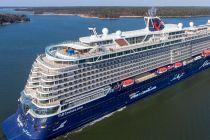
Gebr. Heinemann and TUI Cruises extend retail partnership across fleet
The Hamburg-based travel retailer Gebr. Heinemann SE & Co KG and TUI Cruises have extended their partnership, ensuring continued retail...
February 22, 2025 - Cruise Industry
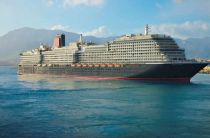
Cunard's ship Queen Anne started first World Cruise from Southampton UK
Cunard Line’s newest ship - MS Queen Anne, commenced her inaugural world cruise. The 112-day voyage (roundtrip from Hamburg Germany) started...
January 9, 2025 - Cruise Industry
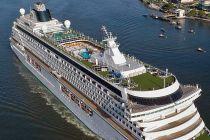
Crystal Cruises announced 2026-H2 itineraries across 5 continents
The ultra-premium travel brand Crystal Cruises unveiled its 2026 sailing schedule, with Crystal Serenity and Crystal Symphony set to explore diverse...
December 5, 2024 - Cruise Industry
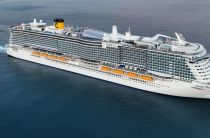
Costa Cruises opens bookings for 2026 European itineraries
Costa Cruises has officially opened bookings for the remainder of its 2026 season, inviting travelers to secure their European vacations aboard 6...
November 26, 2024 - Cruise Industry
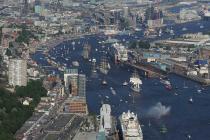
Cruise shipping in Port Hamburg/Hamburger Hafen set to expand in 2025
Hamburger Hafen/Port Hamburg (Germany) is preparing for a busy 2025 cruise season, with Cruise Gate Hamburg (CGH) projecting 294 ship calls, an...
November 20, 2024 - Cruise Industry

Phoenix Reisen’s MS Artania undergoes €20M overhaul at Lloyd Werft
The Bonn-based cruise operator Phoenix Reisen, in partnership with Bernhard Schulte Shipmanagement (Cyprus) Ltd., is preparing for substantial...
November 6, 2024 - Cruise Industry
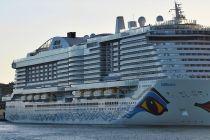
Germany's Kiel Port sets shore power record with AIDA Cruises at the forefront
The adoption of shore power is gaining momentum, particularly in Baltic Sea countries, where AIDA Cruises has taken a leading role in expanding the...
September 29, 2024 - Cruise Industry
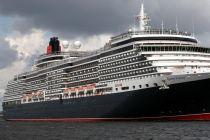
Cunard unveils extended shore excursions for South America 2025 voyages
Cunard Line has announced an array of extended shore excursions as part of its return to South America in 2025, marking its first operation in the...
September 26, 2024 - Cruise Industry
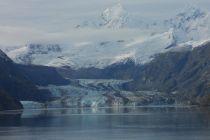
HX-Hurtigruten Expeditions unveils 2026-2027 season, marking 130 years of polar exploration
HX-Hurtigruten Expeditions has unveiled its 2026-2027 season, marking its 130th year of exploration. Building on its legacy as a pioneer in...
September 23, 2024 - Cruise Industry

HX-Hurtigruten Expeditions unveils 2026-2027 itineraries, celebrating 130 years of exploration
HX-Hurtigruten Expeditions has unveiled its 2026-2027 expedition program, featuring new itineraries across Antarctica, Alaska, Greenland, Norway, and...
September 17, 2024 - show more news
